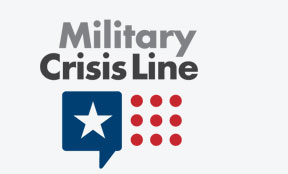
Call: 988 and press 1 for the Military Crisis Line.

While there is no single cause for suicide, there are risk factors and warning signs that can increase the likelihood of an attempt. Conditions such as depression, anxiety and substance abuse, especially when unaddressed, can increase the risk that someone may consider suicide.
Some behaviors may help you determine if a loved one is at risk for suicide, especially if the behavior is new, has increased or seems related to a painful event, loss or change. Most people who take their lives exhibit one or more warning signs, either through what they say or what they do. Examples include the following:
If someone you know exhibits any of these, seek help by calling the 988 Suicide and Crisis Lifeline at 988 and press 1 for the Military Crisis Line.
Trust your instincts and talk to your loved one if you think they may be having thoughts of suicide. Mention the warning signs that prompted you to talk to them, stay calm, and let them know you are there to help. When talking to someone, do the following:
Most important, be prepared to act. Remove any lethal means, such as weapons, drugs or medications, and do not leave the at-risk person alone.
The 988 Suicide and Crisis Lifeline at 988 pecializes in suicide prevention and crisis intervention and offers 24/7 assistance.